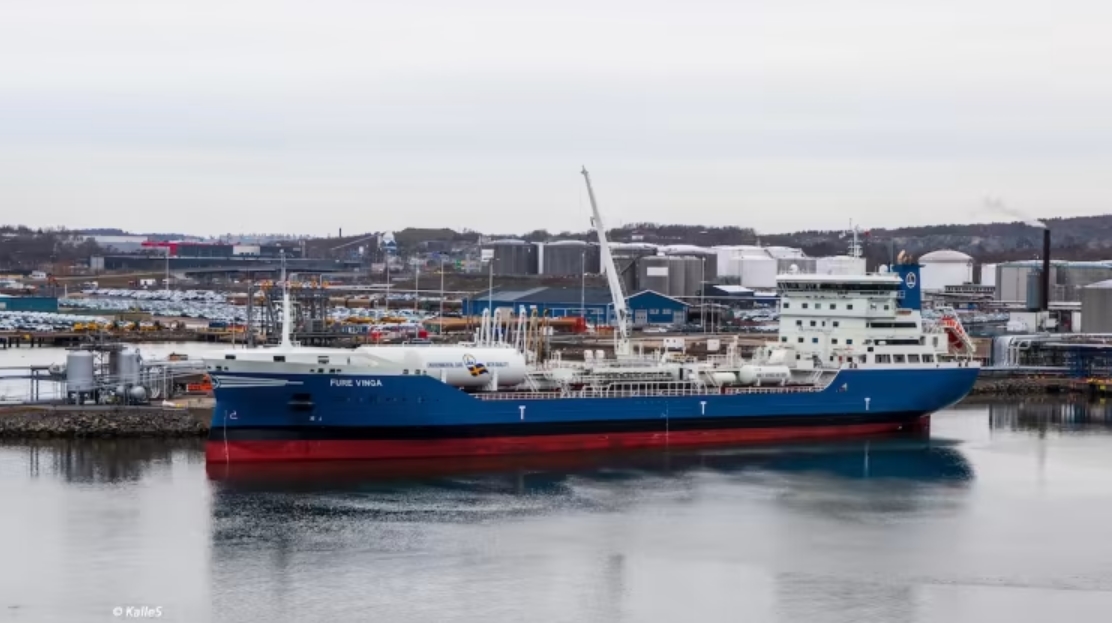Furetank has been granted state and EU climate investment support for installing shore power connection on a tanker currently in production.
The funding will be provided by Klimatklivet, an initiative by The Swedish Environmental Protection Agency and NextGenerationEU. It supports local climate investments that reduce greenhouse gas emissions and contribute the greatest possible climate benefit.

High voltage supports cargo pumps
The vessel in question is currently being built at the shipyard in China. When delivered in Q1 2024 it will become number nine in the VINGA vessel series designed by Furetank and partners. Furetank has made large investments in developing tankers to become the globally most environmentally efficient vessels of their size. Installing the shore power connection, with Klimatklivet funding half of the cost, will improve the environmental performance even further.
"This grant is a very positive response to our environmental efforts, it confirms that we are doing the right thing. We have chosen to install a very powerful 6.6 kV high voltage shore power capability which even supports the cargo pumps during unloading. They consume a lot of energy which can now be provided through the electrical grid instead of ship generators. This eliminates all harmful emissions while in port close to densely populated areas, says Jonatan Höglund, newbuilding inspector at Furetank.
The effort is important, as emissions in port can account for up to 20% of the total emissions from a tanker, in an environment that is often even more sensitive to pollution and noise than at sea.
If ports offer electricity of sufficient capacity stemming from green and clean sources, the climate investment has the potential to reduce CO2 emissions by approximately 600 tons annually*. Another positive effect is an improved working environment on board as noise and vibrations are significantly reduced.
Nudging ports to move forward
The shore power connection on the vessel will be designed to fit the land-based connection planned in the Port of Gothenburg, which has also received funding from Klimatklivet.
Even if there has been talk of ports offering shore power for a long time, many ports hesitate to make the investment as tankers traffic many different ports and it is hard, not to say impossible, to predict when and how often an equipped vessel will frequent a specific port. At the same time, shipowners hesitate to make the investments as no ports offer the opportunity yet, even though a few have projects underway.
"It is a classic "chicken-and-egg" dilemma where we now choose to progress before the infrastructure is in place. We hope and believe that our move can contribute to the expansion of shore power connections gaining momentum in Sweden and beyond, says Jonatan Höglund.
*Calculations made by Furetank based on emissions in port from VINGA vessel Fure Ven during 2021.